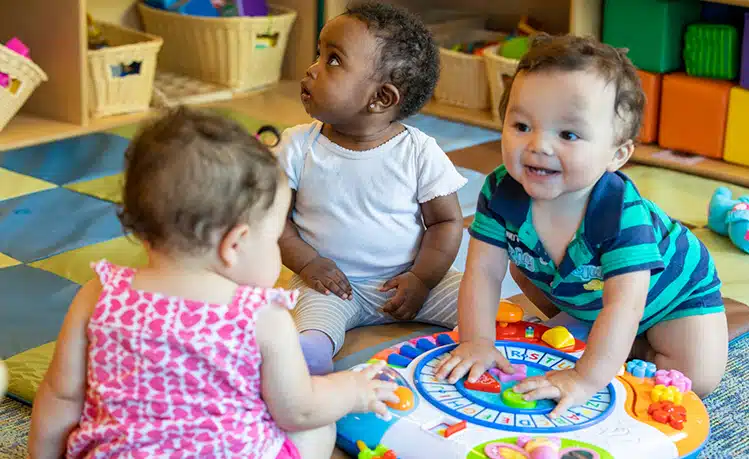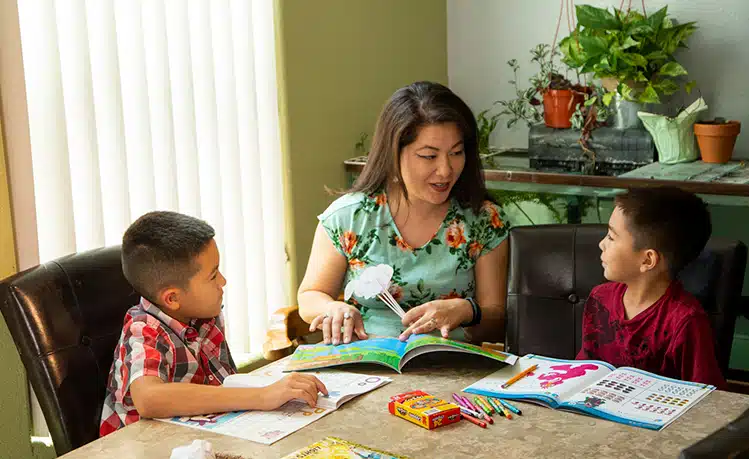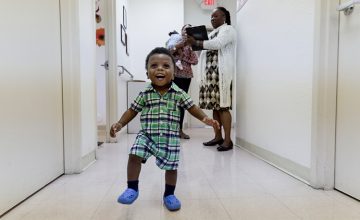Explore Early Childhood Education Programs for Nevada’s Youth at Sunrise Children’s Foundation
Sunrise Children’s Foundation (SCF) delivers a full scope of services to children from birth to age five. We provide a comprehensive continuum of care to ensure that children in Nevada have a chance at success in the critical early years of their lives.
Founded in 1993, SCF currently offers multiple programs throughout Clark County, employs approximately 190 individuals, and touches the lives of over 150,000 children and families annually. We offer three main programs to fulfill our mission of helping children and their families lead safe, healthy, and educated lives. These three main programs include:
- Early Head Start
- Home Visiting
- WIC
Get in touch to learn more about the Early Childhood programs at Sunrise Children’s Foundation.
What Are the Core Programs of Early Childhood Education?
There are typically four core settings where you’ll find quality Nevada Early Childhood education programming happening. Each setting brings its own benefits and drawbacks, and what might work for one child and their family might not be the best option for another.
It’s important to understand these four core programs to determine what the best setting for your child might be. Below are the four common programs and what makes them unique.
Traditional Preschool
A traditional preschool often looks like a traditional school setting. Some might even be located within a public school building as well. In a traditional preschool, you’ll often find a structured staff roster, including a preschool director, administrator, and licensed educators and paraprofessionals.
Preschools can be public or private, allowing parents to choose different settings based on family values. For example, there are faith-based private preschools that might operate out of a church and public preschools that operate under a public school district.
Benefits of traditional preschool include:
- School readiness because children learn and play in a traditional school setting.
- Pre-K learning standards are followed.
- Exposure to various trained educators and staff.
Head Start
Head Start programs operate a lot like preschools in that there is a curriculum where both learning and play happen. There are structured daily routines, a staff roster, and often a director as well.
Head Start programs, however, are funded by the federal government and are designed to help at-risk children and children from low-income families build school readiness so that they are prepared for kindergarten. Head Start programs also follow a federally mandated curriculum.
Benefits of Head Start include:
- Access to quality education for at-risk children.
- Evidence-based curriculum promotes school readiness.
- Support for cognitive, social, and developmental needs.
Family Care
Family Care Early Childhood programming takes place in the home setting. This type of programming might also be referred to as a home-based program. In this type of setting, a child might receive Early Childhood education services either in their home by a licensed childcare provider or in someone else’s home.
There is a structured curriculum. However, that curriculum is generally up to the discretion of the licensed childcare provider. Quality family care programming will utilize an evidence-based curriculum offered through the state or federal level or a private curriculum.
Benefits of family care programs include:
- Smaller environments are not as overstimulating as other settings.
- Minimized separation anxiety for children.
- A more intimate setting for a smoother transition into Early Childhood education for both child and parents.
Child Care Centers
Child care Centers, also known as daycare providers, may offer a high-quality Early Childhood education program for children ages three to five. Child care centers are generally private institutions. However, you may be able to secure public funding via a voucher or grant that you can put toward the tuition payment at a private daycare center.
Benefits of child care programming include:
- Longer operating hours.
- They often follow play-based models while offering school readiness support.
- There is more flexibility in the curriculum used.
What Makes a Quality Early Childhood Education Program?
While there are different settings where you will find Early Childhood education happening, there isn’t one setting that stands out as being better than another. Instead, you have to find what’s best for you and your family, and you can do this by looking at what an Early Childhood program has to offer, whether they have the specific support your child needs, and what financing options are available to you.
Below are some common factors to consider when choosing a high-quality Early Childhood education program.
Safe Setting
Early Childhood education programs are required to follow specific safety standards. You can tour a program of your choosing and ask about their safety standing, safety protocols in place, and other questions you have regarding their approach to safety.
Curriculum Rooted in Evidence-Based Practices
While not all Early Childhood education programs follow a curriculum, there should be an established structure in place, even if it is a play-based structure. High-quality Early Childhood education programs, however, typically utilize evidence-based curriculum that incorporates learning, social, emotional, and developmental concepts that are age-appropriate.
Engaging Learning Environment
High-quality Early Childhood education programs should have an engaging learning environment. This means a learning space with different play centers, age-appropriate and safe toys, books, designated nap areas, and spaces where children and educators can come together for group learning.
Of course, all settings will look different, but a positive and engaging learning environment is typically one that’s filled with color and toys and is an overall welcoming place for children to learn and grow.
Experienced and Licensed Educators
An Early Childhood education program is only as sound as the teachers leading it. It’s critical to have trained and experienced educators on staff who can help guide the growth of children. In some cases, there might be specialists on staff, like speech pathologists or special education teachers, who can work with children with physical or cognitive disabilities.
Parental Involvement
Learning starts at home, and the best education programs have the full support of parents. Through regular parental involvement, parents and teachers can be on the same page with their child’s learning goals.
What are the Benefits of Sunrise Children’s Foundation Early Childhood Programs?
The Sunrise Children’s Foundation Early Childhood programs are designed to help children meet developmental milestones and develop social, emotional, and developmental skill sets that will prepare them for their next chapter in life.
Additionally, our programs strongly focus on helping parents gain the skills and knowledge to create a safe and supportive environment for their children. Our team will help connect you to resources, like Nevada WIC, and services in your community that will help you in the ways you and your children need.
Learn more about our programs and services when you give us a call at 702-631-7130.
Sources:
Nevada Pre-kindergarten Standards, Revised 2023. (2023).
Nevada WIC. (2024).
Welcome to the Office of Early Learning and Development (OELD). (2025).
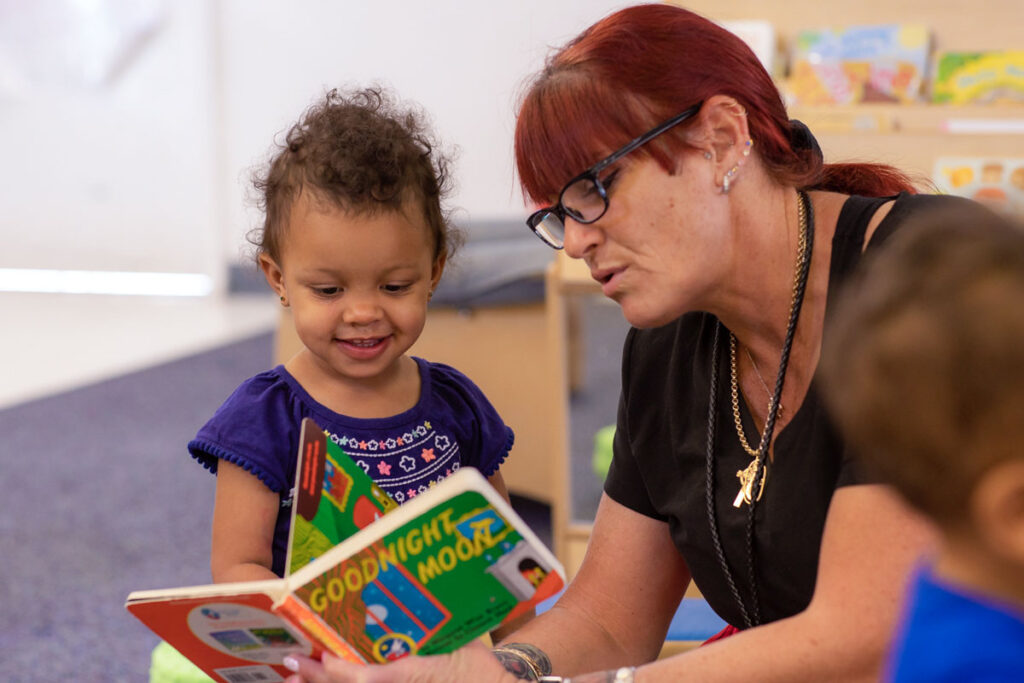
Early Head Start
Offers comprehensive child development and family support services to low-income and underserved populations including expecting mothers, infants, toddlers and their families.
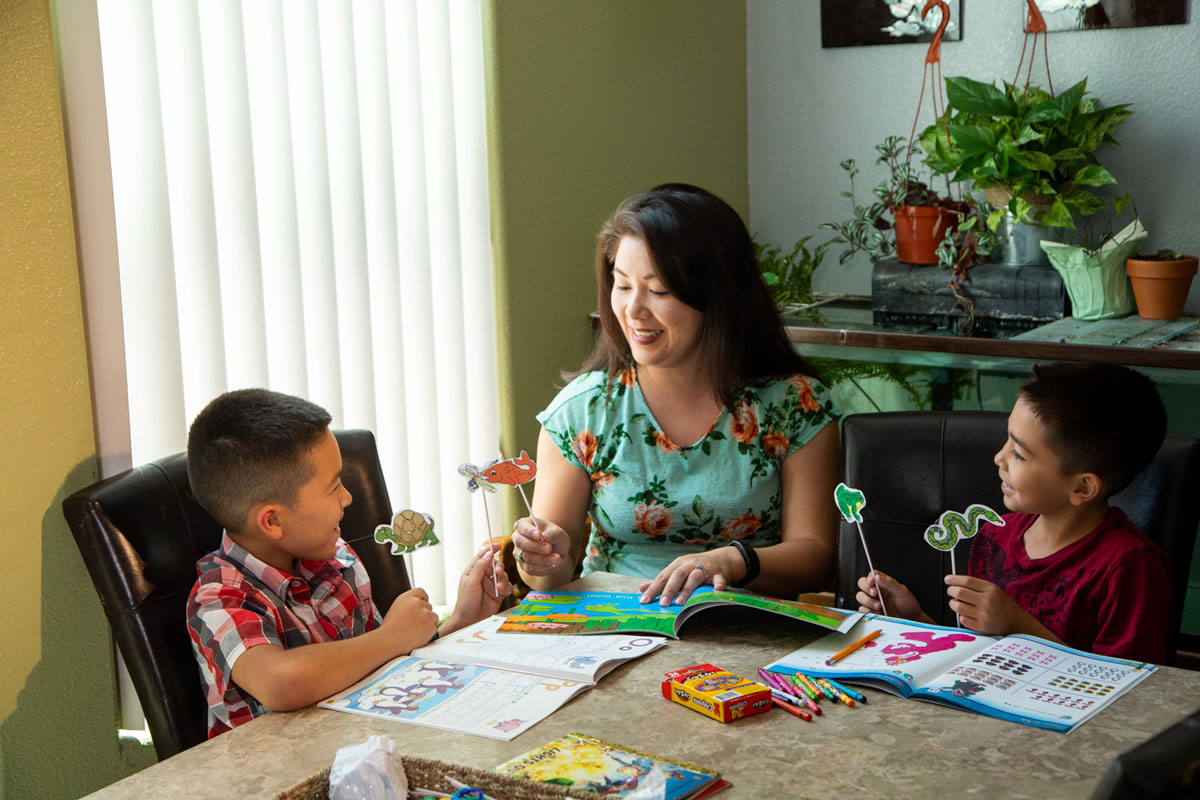
Home Visiting
A home-visiting, early intervention program that offers free home-based early childhood education working with their parent(s) as their first teacher. Find out more about how we can help.

WIC Services
Safeguards the health of low-income women, infants, and children up to age 5 who are at nutrition risk by providing nutritious foods to supplement diets, information on healthy eating, and referrals to health care.
Need More Information?
Send us a message.
If you would like more information on our agency, our early childhood education programs or volunteering, please complete the form. Our staff will get back to you as soon as possible.

